![]()
Jesus: “If those who guide you say: Look, the Kingdom is in the sky ...”
“Note: As I was preparing the Nicodemus series I realized that the message of the Resurrection and Last Judgment were almost always declared at public programs!!! ....................... and not at Pujas as thought. How can this be true when SYs have always maintained that care must be taken so as not to frighten new seekers ............ and thus the mild and vastly unknown subtle system must be used at all times.But Shri Mataji has always, Always, ALWAYS declared the Resurrection, Last Judgment, Jesus, Kingdom of God to seekers coming for the first time! How come She was ignorant of the collective wisdom of SYs?
This is definitely a crime against humanity, and blasphemy against the Holy Spirit. SYs have collectively and conscientiously refused to follow Her example, and replaced it with the subtle system. One has to check with all public programs and grasp the sheer audacity of these negative forces working against the plans of Shri Mataji to emancipate humanity to become the Spirit. It is just unbelievable!” Jagbir Singh
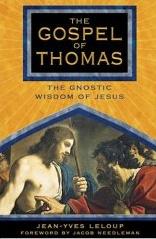
LOGION 3
Yeshua said:
If those who guide you say: Look,
the Kingdom is in the sky,
then the birds are closer than you.
If they say: Look,
it is in the sea,
then the fish already know it.
The Kingdom is inside you,
and it is outside you.
When you know yourself, then you will be known,
and you will know that you are the child of the Living Father;
but if you do not know yourself,
you will live in vain
and you will be vanity.
(CF. MATT 24:26-27; MARK 13:5-7; LUKE 17:21; DEUT 30:11-14; ROM 10:6-8)
This logion tells us that the Kingdom is the presence of the Spirit of God within us. It is not to be sought exclusively in the outer, and it is not to be sought exclusively in the inner. It invites us to move out of the dualism that forms the climate of our ordinary consciousness.
This climate is one of oppositions, antagonisms, and exclusions. For example, we know the harm that is created by phrases such as "no salvation outside the Church.” When the term church is understood in merely an institutional sense, then there are those inside it, and those outside it—which means that most of humanity is excluded from salvation...
We begin to see the wisdom of the nondualist language in the Gospel of Thomas. If it had simply said, "The Kingdom is within you," it would give one-sided privilege to inner experience and meditations. This would encourage us to flee the world, to disregard what is going on around us. Happiness would be only spiritual and we would be separate from our carnal half. The world, others, and matter itself would be reduced to temptations and threats prowling around our inner being.
If the gospel had said, "The Kingdom is outside you," then we would be encouraged to transform the world and convert others at all costs ...
This gospel is a cure for our schizophrenia of outside vs. inside, for it tells us that the Kingdom includes both. There is no opposition, because outer and inner realities come together in the Kingdom. This can transform our way of seeing things ...
Gnostics are whole human beings who do not exclude any part of themselves. True self-knowledge cannot be limited to knowledge of the soul, nor to knowledge of the "little me," the one wrapped up in a bag of skin. Self-knowledge is consciousness of all the dimensions of our being.
In this consciousness, as the second part of this logion tells us, we discover that we are also known. In our most intimate core, in the very movement of integration of all that we are, we discover the Other who is our ground. Again, we discover the metaphysical outer in the ultimate depths of the inner.
Thus, to know ourselves is to discover that we are known. It is to discover that in every act of true knowledge there is participation by an Intelligence that communicates through us and that offers us participation in its Light.
Jean-Yves Leloup, The Gospel of Thomas
Inner Traditions (2005) pp. 67-70
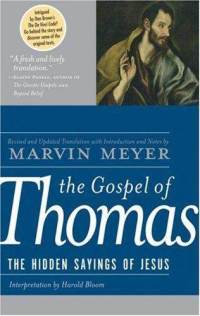
Logion 3: “If we believe in it, we shall live in it for ever.”
3. Jesus said, “If your leaders say to you, 'Look, the kingdom is in heaven,' then the birds of heaven will precede you. If they say to you, 'It is in the sea,' then the fish will precede you. Rather, the kingdom is inside you and it is outside you. “When you know yourselves, then you will be known, and you will understand that you are children of the living father. But if you do not know yourselves, then you dwell in poverty, and you are poverty.”
“If your leaders say to you ...”: This saying parodies announcements that the kingdom is in heaven above or in the underworld...
“In the sea": Papyrus Oxyrhynchus 654.13 provides the variant reading "under the earth.”
"The kingdom is inside you and it is outside you": Compare Luke 17:20- 21: Gospel of Thomas saying 113:4. Similar expressions are known in the Manichaean Psalm Book, particularly 160, 20-21: "Heaven's kingdom, look, it is inside us, look, it is outside us. If we believe in it, we shall live in it for ever.”
"know yourselves": The well-known imperative "Know yourself" was among the Greek inscriptions at the oracular center dedicated to Apollo at Delphi. It is discussed in Plutarch's essay On the E at Delphi and Plato's dialogue Alcibiades I. In Book of Thomas 138, 7-21, Thomas is described as "The one who knows oneself.” In early Christian literature, the formulation "know ... be known" is attested in Galatians 4:8-9; 1 Corinthians 8:1-3; 13:12; the Nag Hammadi Gospel of Truth 19,32-33 ("They knew, they were known").
The Gospel of Thomas: The Hidden Sayings of Jesus
Marvin Meyer, HarperOne; 2nd edition (October 9, 1992) pp. 79-80
(Papyrus Oxyrhynchus 654.9-21)
Jesus say “[If] your leaders [say to you, 'Look], the kingdom is in heaven,' the birds of [heaven will precede you. If they say] that it is under the earth, the fish of the sea [will enter, and will precede] you. And [God's kingdom] is inside you [and outside (you). Whoever] knows [oneself] will find this. [And when you] know yourselves, [you will understand that] you are [children] of the [living] father. [But if] you do [not] know yourselves, [you are] in [poverty], and you are [poverty].”
The Gospel of Thomas: The Hidden Sayings of Jesus
Marvin Meyer, HarperOne; 2nd edition (October 9, 1992) pp. 66-67
Logion 3: "This is the good news! Malkut, the kingdom, is within you and all around you"
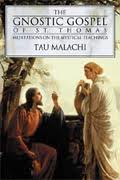
Verse 3
Jesus said, “If those who lead you say to you, 'See, the kingdom
is in the sky,' then the birds of the air will precede you. If
they say to you, 'It is in the sea,' then the fish will precede
you. Rather, the kingdom is inside of you, and it is outside of
you. When you come to know yourselves, then you will become
known, and you will realize that it is you who are the
sons of the living father. But if you will not know yourselves,
you dwell in poverty and it is you who are that poverty.”
Malkut, the kingdom of heaven, is within you and all
around you-yet, if you do not know that the kingdom
is within you, then you will not see the kingdom outside
of you. Such is the nature of reality, this magical display of
consciousness. The inside and the outside are not separate
but are intimately connected. The reality of your experience
is the magical display of your own consciousness. A change
in consciousness brings about a corresponding change in the
reality you encounter. A change in the reality you encounter
is an expression of a change in consciousness.
In the world and waking consciousness there are many cocreators
of the magical display. There is the individual and the
collective creation of this magical display-and the individual,
the collective, and the universal consciousness are completely
interconnected and interdependent. You alone are not the creator
of the reality you experience. Every living being is a
unique individual expression of the Life-power, the Holy One
of Being, and a co-creator with God of the reality you experience.
Nevertheless, when there is a transformation in your own
consciousness, there is a proportional and corresponding
transformation in the world, in the reality of your experience. In
transforming yourself, you transform the world in which you exist. Do
you want to change the world? You are the world and the world is you.
If you want to change the world, make a change in your own
consciousness.
Whether heaven or hell or a world of admixture, it is all a state of
mind, a condition of consciousness-being. The kingdom of heaven is
not a place, but a spaciousness in consciousness, just as hell is a
severe confinement and limitation upon consciousness. There are
worlds within worlds and worlds beyond, heavens and hells and spaces
in between. All are an expression of consciousness-being, which is
the radiant nature of consciousness, and all exist within
consciousness.
There are higher, holier worlds than this one. No one can know
how many there are. Nor can anyone be certain that any given world
or level of consciousness is the same for different persons. Heaven
could well be a dread and terrible thing for the wicked person, and
for a saint, "hell" could be the most intense joy. What is known is
that, most of the time, people are too busy here in this world to
notice what is transpiring within it and beyond it, too lost in
distraction to know themselves and so realize the wealth of higher
and holier worlds that occupy the same space. Most ordinary
individuals do not know the creative power that is in them and do not
know that they are the world and the world is them. In ignorance,
they remain bound to lesser gods and shadow lands, and do not know
the world of Supernal Light within and all around them.
So many souls are asleep and dreaming strange and fitful dreams.
They are asleep and do not know that they are dreaming and so cannot
awaken in the dream to transform it. To the awakened ones, the
holy ones, it is a sad and sorry sight. It is a vision of sorrow to
behold the nightmares created by self-grasping, desire, and fear, and
all of the suffering that naturally follows. The awakened ones know
the world of Supernal Light here and now, yet they also know how very
real the suffering is of those who remain ignorant and asleep. It is
not an issue of personal salvation. No one is perfectly free until
everyone is free. "The first shall be last and the last shall be
first" (Mark 10:31). Until the last "Wicked" person repents and seeks
righteousness, the great transformation of the Second Coming shall
not be complete.
The force that binds is the force that will set everyone free. It is
the same consciousness-force that manifests as the adversary or the
Messiah, as heaven or hell. Enlightenment or unenlightenment are
expressions of the very same consciousness-force, the one Life-power.
There is one Divine mind, but two paths. This world stands on the
threshold in between. It could go either way at any moment-toward
heaven or toward hell-yet salvation is always at hand, the Second
Coming ever near, as near as your breath and the beat of your heart,
as close as the very nature of your consciousness-being!
Now listen and hear the Word of the Lord. You are free to choose!
It could be heaven or it could be hell, but everyone must choose.
within you are the powers of salvation and damnation, the Light and
the Darkness. When you are at last transparent, there will only be
the Light and Life. That is the certainty of salvation in our Lord.
Yet the suffering of damnation is all too real until salvation is
attained. You must choose each moment. You must know the creative
power that is in you and live in remembrance of the Spirit and Truth.
What is to be attained? Knowing and experiencing yourself as part
of the Sacred Unity that is God, here and now. You have always been
part of that Sacred Unity, are and always will be part of that Sacred
Unity, the Holy One of Being. Never have you been separate from the
Holy One. Union with God is not really an attainment; it is a present
reality and truth. You need only remember the Spirit and Truth. You
need only awaken and live with this awareness. It is not something
you lack, but who and what you most truly are, the son or daughter of
the Living God-the child of the Light, the Light of awareness itself.
Who are lost that they should be found? I tell you, none are lost
that they should be found. The one who is lost has never existed, and
the one to be found was never born. You are what you are seeking,
the bornless Spirit.
This is the good news! Malkut, the kingdom, is within you and all
around you. Eternal life is the Truth of your inmost being. Death has
never existed. You are free!
Tau Malachi, The Gnostic Gospel of St. Thomas
Llewellyn Publications (June 8, 2004) pp. 8-10

The Spiritual Temple of Tomorrow
“Inner human potentials of intuition and creativity have just begun to be rediscovered in all of these areas through the new sciences of consciousness and healing. Earlier in this century, two great prophets of modern times, East and West — one the French Jesuit anthropologist and theologian Pierre Teilhard de Chardinand and the other the Hindu sage Sri Aurobindo of Pondicherry, India — proclaimed that the next step in human evolution would be 'a psychic-spiritual mutation' to a higher consciousness.
The mythic foundations of the old world order — and its rationalistic, reductionalistic, materialistic, Newtonian presuppositions which have dehumanized Western civilization and created a stripped, mechanistic model of the human being and of human societies — are no longer credible to those who know enough. But it is also obvious that not everyone in positions of power in church, state, or academia seems to understand yet the new models of future science and the new sciences of consciousness and healing, or their significance for approaching forms of planetary existence that will profoundly change and affect our daily lives in the twenty-first century...
In the social sciences of the near future, positive forms of primary human spiritual and psychic experiences will be recognized as the sources of classic myths and religious doctrines. Scholars will understand more about the transformative powers of the psyche and spirit; immortality; life after life; communication with dead saints, sages, and ancestors; extraordinary healings; and belief in 'other' or 'higher worlds' and a multidimensional universe. These experiences will be acknowledged one day in secular societies — not as mere superstitions from a prescientific age — but rather as universal factors in the formation of tremendously empowering, symbolically expressed creeds found in all cultures, ancient and modern. We will then perhaps at last be able to see our way past the present radical opposition between science and spirituality. We might also begin to lessen the misunderstandings between conflicting faiths that have been so destructive in human affairs over the past several centuries and millennia.
Are there really universal human values waiting to be discovered within the world's religions and cultures, across all sectarian boundaries? Yes! But these cannot be discovered by a rationalistic, left-brained academic analysis alone. The consciousness of scholars themselves will have to change and their perspectives expand to the consideration of alternative new paradigms for the convergence of science and spirituality in the global village. And more important even than this, we must begin to pay attention to the qualities of personal transformation in the creation of a new humanity.
The fruits of the spirit — under whatever terminology — have always been recognizable and are treasured by mystics who are frequently a force for positive social reform in most of the world's great religions and cultures, East and West. These universally recognized qualities of authentic spiritual life in all of the great religious traditions of the world include unselfish love, the readiness to forgive injuries, peace, justice, compassion, humility, and the joyous service of a global humanity, of all sentient life, and of the planet itself. And it is classical mystical experience — in many of its varied religious and secular forms — that has in fact inspired and nurtured the perennial heroic and prophetic quest for peace, justice, and a better world '... on Earth, as it is in Heaven.' ”
John Rossner, The Spiritual Temple of Tomorrow
(John Rossner, Ph.D., D.Sc., D.Litt., is professor of religion at Concordia University, Montreal, Canada. He is president of The International Institute of Integral Human Sciences and abbot-general of The Order of the Transfiguration. Source: Georg and Trisha Lamb Feuerstein, Voices on the Threshold of Tomorrow, The Theosophical Publishing House, Quest Books, 1993, p. 6-8.)
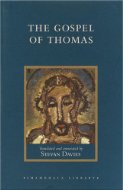
Logion 3: “The idea that self-knowledge is a road to salvation is perhaps as old as philosophy itself.”
3a Jesus said: If your leaders say to you “Look! The Kingdom is in
the sky!” then the birds will be there before you are. If they say
that the Kingdom is in the sea, then the fish will be there before
you are. Rather, the Kingdom is within you and it is outside of you.
[4]
3b When you understand yourselves you will be understood. And you
will realize that you are Sons of the living Father. If you do not
know yourselves, then you exist in poverty and you are that poverty.
[5]
[4] Having introduced the principle that the Kingdom is to be sought
and found, the Gospel of Thomas parodies two ideas attributed to
rival leaders. The Kingdom is not to be found across the sea, and it
is not up in the sky. Even today, many people will point to the sky
if asked where heaven is to be found. But this saying makes fun of
such an idea. The Kingdom is within you, as Luke's Gospel also says
(17:20-21). And yet it is also outside. Thomas is a spiritual Gospel,
yet it points out to the world of nature and to the realm of all
creation instead of pointing back only toward the reader.
[5] The idea that self-knowledge is a road to salvation is perhaps as
old as philosophy itself. Its most famous occurrence is the
inscription "Know Thyself" at the oracle at Delphi. Thomas's
statement "The Kingdom is within you and outside of you" places that
Gospel in the context of ancient philosophical speculation and
affirms the goodness of both human nature and of the nature of the
outside world in an unambiguous fashion. Being Sons of the Father is
to be like Jesus himself, a status one does not attain anew but that
one realizes one has always had. Accordingly, self-discovery is the
key to finding the potential wealth buried in people and in the world.
Davies & Harvey, Gospel of Thomas Annotated and Explained
Reviews, Skylights Path (2006) pp. 4-5
Logion 3: "In contrast to such misguided leadership, Jesus directs the readers to understand their own empowerment.”
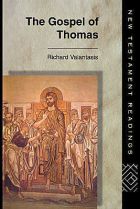
Saying 3 Jesus said, “If your leaders say to you, 'Look, the
Scholars have read this saying in a number of ways, as a "popular
Jewish motif of seeking after wisdom in the furthest reaches of the
universe" (Patterson 1993: 72), or as a midrash on Deuteronomy 30:10-
15 which establishes a connection between the commandments, wisdom,
and the interior status of the reign of God (Glasson 1976-77: 151-52
and Davies 1983: 41-46). All of these interpretations overlook the
subject of the saying: "those who lead you.” This saying
problematizes leadership. Readers experience for the first time the
irony and sarcasm possible in these collections of sayings. The
narrative strategy has already invested the reader with a kind of
full authority to find the community's interpretation of the sayings,
a process hat has guaranteed immortality. When we first hear
about "leaders," they are giving bad information, directing the
seekers' attention to the sky or under the earth. To follow such
leaders results in getting lost. In contrast to such misguided
leadership, Jesus directs the readers to understand their own
empowerment: the imperial rule of God is found both within and
without the seeker. True leadership directs the seeker inward to a
new understanding of the self, and outward to a new understanding of
the world in which God's imperial rule is manifested. The seeker
guides the self into knowledge, requiring no external guidance other
than the saying of Jesus that directs the seekers to themselves.
The important point is not only that there is a new understanding of
an empowered self, but also that God's imperial rule must be
understood anew. The location of God's imperial rule is not in the
heavens, nor is it under the earth (other creatures would experience
the rule of God first, if this were the case), but God's imperial
rule is within and without the person. The interior location of the
imperial rule, as Patterson (1993:71-72) argues, finds specific
thematic parallels with Luke 17.20-21 ("for behold, the kingdom of
God is in the midst of you") and perhaps with Matthew's "Warning
against those who would locate the kingdom in a specific place"
(Matthew 24.26). The Kingdom of God in this saying, however, remains
interior in that it emerges from self-knowledge and exterior in that
it depends upon a self-awareness that leads to a new understanding of the
mundane world.
This relocation of the imperial rule of God probably represents one
side of an ongoing conversation among early Christian people about
authority and power: some probably expected an apocalyptic rule of
God inaugurated from the heavens (as Paul did in 1 Thessalonians),
others may have experienced the church community itself as the
inauguration of the reign of God (as Matthew did in his gospel),
still others at once interiorized the rule of God and, therefore,
reinterpreted its external significance (as in this saying).
This new awareness and understanding of the self develops from the
kind of seeking mentioned in the previous saying. The readers, and
the seekers, will find this understanding of the rule of God as they
come to know themselves. Self-knowledge reveals the connection to the
Father, not as an external adoption by a distant heavenly Father, but
as "children of the living Father," a Father who is present and
vital. The opposite of this self-knowledge is poverty: true wealth
does not consist in anything but knowing self, poverty both as a
state of being and as a condition of life follows from the refusal to
seek.
All of these issues are intimately connected. The true self, the
empowering strategy both of the narrator and of Jesus' sayings, the
alternative understanding of the world, the redefinition of poverty
both as ontological and social, the rejection of hierarchical
leadership—all these conspire to create alternative understandings of
self, relationships, and world. These alternatives work ascetically;
they are a part of a systematic means of redefining and reorienting
the seeker to the world (see Valantasis 1995b). They open the
possibility of transformation and renewal through the interpretative
practices outlined in the sayings.
Richard Valantasis, The Gospel of Thomas
Routledge; 1 edition (June 27, 1997) pp. 58-9
P. Oxy 654.27-31 [Coptic Saying 3]
Jesus says," [If] your leaders [say to you, 'Look,] the
The community these sayings posit experiences itself as fully empowered: its members do not need guidance. In fact, as this saying indicates, leaders often point seekers in the wrong direction, leading them to the heavens or the seas where nothing significant happens, and where other creatures more logically would function. So this saying encourages the seekers to ignore outside leadership and follow themselves into a kind of self-knowledge that reveals their adoption
For these seekers, self-direction marks true guidance: that which most leaders find only in objectification and exteriorization, the true seeker finds both within the self and outside the self. The interiority of the discovery of the rule of God correlates (and presumably precedes) any exterior experience of it. The desired reign of God cannot be located only outwardly (in the sky or under the earth), but also inwardly. Nothing circumscribes the rule of God or objectifies it: it is both within and without the person.
The statement about the interiority and exteriority of the rule of God leads to the development of a contrast based upon self-knowledge. The interior and exterior reality of the rule will be found by those who know themselves. The finding now becomes identified with self-knowledge, and that self-knowledge results in the self-understanding of the seeker as “A child of the living Father.” The adoption by God emerges from a process of discovery of the self and its relationship with the rule of God. This beneficent situation contrasts markedly with its alternative. For those who do not know themselves, who have not discovered their true selves in relationship to the rule of God, they "live in poverty," and in fact become that poverty. The process of self-discovery, that is, does not remain neutral so that one gains an increment of knowledge or understanding which adorns an otherwise rich life. Rather, the knowledge itself becomes the wealth and its lack becomes poverty. The personal stakes for the seeker revolve about either a wealth or a poverty, becoming rich or poor. The starkly drawn contrast again provides a window into the emotional and psychological dynamic of those who read and interpret these sayings.
Richard Valantasis, The Gospel of Thomas
Routledge; 1 edition (June 27, 1997) pp. 33
Logion 3: "The community these sayings posit experiences itself as fully empowered: its members do not need guidance.”
P. Oxy 654.9-21 [Coptic Saying 3]
“Jesus says, "If] your leaders [say to you, 'Look,] the
The community these sayings posit experiences itself as fully empowered: its members do not need guidance. In fact, as this saying indicates, leaders often point seekers in the wrong direction, leading them to the heavens or the seas where nothing significant happens, and where other creatures more logically would function. So this saying encourages the seekers to ignore outside leadership and follow themselves into a kind of self-knowledge that reveals their adoption by God. For these seekers, self-direction marks true guidance: that which most leaders find only in objectification and exteriorization, the true seeker finds both within the self and outside the self. The interiority of the discovery of the rule of God correlates (and presumably precedes) and exterior experience of it. The desired reign of God cannot be located only outwardly (in the sky or under the earth), but also inwardly. Nothing circumscribes the rule of God or objectifies it: it is both within and without the person.
The statement about the interiority and exteriority of the rule of God leads to the development of a contrast based upon self-knowledge. The interior and exterior reality of the rule will be found by those who know themselves. The finding now becomes identified with self- knowledge, and that self-knowledge results in the self-understanding of the seeker as “A child of the living Father.” The adoption by God emerges from a process of discovery of the self and its relationship with the rule of God. This beneficent situation contrasts markedly with its alternative. For those who do not know themselves, who have not discovered their true selves in relationship to the rule of God, they "live in poverty," and in fact become that poverty. The process of self-discovery, that is, does not remain neutral so that one gains an increment of knowledge or understanding which adorns an otherwise rich life. Rather, the knowledge itself becomes the wealth and its lack becomes poverty. The personal stakes for the seeker revolve about either a wealth or a poverty, becoming rich or poor. The starkly drawn contrast again provides a window into the emotional and psychological dynamic of those who read and interpret these sayings.”
Richard Valantasis, The Gospel of Thomas
Routledge; 1 edition (June 27, 1997) pp. 33-4
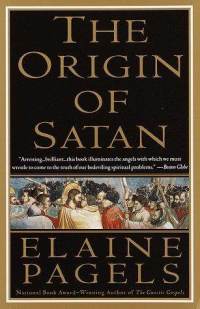
Logion 3: “One enters that kingdom when one attains self-knowledge.”
“Why was this gospel suppressed, along with many others that have
remained virtually unknown for nearly two thousand years? Originally
part of the sacred library of the oldest monastery in Egypt, these
books were buried, apparently, around 370 C.E., after the archbishop
of Alexandria ordered Christians all over Egypt to ban such books as
heresy and demanded their destruction. Two hundred years earlier,
such works had already been attacked by another zealously orthodox
bishop, Irenaeus of Lyons. Irenaeus was the first, so far as we know,
to identify the four gospels of the New Testament as canonical, and
to exclude all the rest. Distressed that dozens of gospels were
circulating among Christians throughout the world, including his own
Greek-speaking immigrant congregation in Gaul, Irenaeus denounced as
heretics those who 'boast that they have more gospels than there
really are ... but really, they have no gospels that are not full of
blasphemy.' Only the four gospels of the New Testament, Irenaeus
insisted, are authentic. What was his reasoning? Irenaeus declared
that just as there are only four principal winds, and four corners of
the universe, and four pillars holding up the sky, so there can be
only four gospels. Besides, he added, only the New Testament gospels
were written by Jesus own disciples (Matthew and John), or their
followers (Mark, disciple of Peter, and Luke, disciple of Paul).
Few New Testament scholars today agree with Irenaeus. Although the
gospels of the New Testament—like those discovered at Nag Hammadi—are
attributed to Jesus' followers, no one knows who actually wrote any
of them; furthermore, what we know about their dating makes the
traditional assumptions, in all cases, extremely unlikely. Yet
Irenaeus's statements remind us that the collection of books we call
the New Testament was formed as late as 180-200 C.E. Before that
time, many gospels circulated throughout the Christian communities
scattered from Asia Minor to Greece, Rome, Gaul, Spain, and Africa.
Yet by the late second century, bishops of the church who called
themselves orthodox rejected all but the four canonical gospels,
denouncing all the rest, in Irenaeus's words, as 'an abyss of
madness, and blasphemy against Christ.' Irenaeus wanted to
consolidate Christian groups threatened by persecution throughout the
world. The gospels he endorsed helped institutionalize the Christian
movement. Those he denounced as heresy did not serve the purpose of
institutionalization. Some, on the contrary, urged people to seek
direct access to God, unmediated by church or clergy.
The Gospel of Thomas, as noted above, claims to offer secret teaching—
teaching quite different from that of Mark, Matthew, Luke, and John.
According to Mark, for example, Jesus first appears proclaiming
that 'the time is at hand; the Kingdom of God is drawing near.
Repent, and believe in the gospel' (1:15). According to Mark, the
world is about to undergo cataclysmic transformation: Jesus predicts
strife, war, conflict, and suffering, followed by a world-shattering
event—the coming of the Kingdom of God (13:1-37).
But in the Gospel of Thomas the 'kingdom of God' is not an event
expected to happen in history, nor is it a 'place.' The author of
Thomas seems to ridicule such views:
Jesus said, 'If those who lead you say to you, 'Lord, the kingdom is
in the sky,' then the birds of the sky will precede you. If they say
to you, 'It is in the sea,' then the fish will precede you' (NCH
II.32.19-24).
Here the kingdom represents a state of self-discovery:
'Rather, the kingdom is inside of you, and it is outside of you. When
you come to know yourself, then you will become known, and you will
realize that it is you who are the sons of the living Father' (NHC
II.32.25-33.5)
But the disciples, mistaking that kingdom for a future event, persist
in naive questioning:
'When will...the new world come?' Jesus said to them, 'What you look
forward to has already come, but you do not recognize it' (NHC II.42-
10-12)
According to the Gospel of Thomas, then, the kingdom of God
symbolizes a state of transformed consciousness. One enters that
kingdom when one attains self-knowledge. The Gospel of Thomas teaches
that when one comes to know oneself, at the deepest level, one
simultaneously comes to know God as the source of one's being.”
Elaine Pagels, The Origin of Satan: How Christians Demonized Jews
Pagans, and Heretics, Vintage (1965) 69-71

The Paraclete Shri Mataji
“Who is the Antichrist? They're describing he is the Antichrist, that fellow is the Antichrist. That's not the thing. There's an Antichrist within us who accepts all these things which are against the purity and Love of Christ... .
All such religions have to finish. They have to go now. it's too much. You cannot support them. They are so much full of anti-religious temperament that you cannot just bear them. it's better to finish Islam, Hinduism, Christianity, Sikhism, Buddhism, Jainism, all isms, one after another.
To what religion did Christ belong. I don't know ... You don't belong to any other religion because there is no reason in that. So by the year 2000 I hope all these religions will run away from this Earth. All of them fighting for nothing at all, killing each other for nothing at all. They want, they want to fight, they like to fight. Why blame Koran? Why blame Bible? Why blame anyone? They want to fight. They are of divisive nature.”
The Paraclete Shri Mataji
Give Up Your Antichrist Behavior, Christmas Puja
Ganapatipule, India — December 25, 1996
Note: After going through the priceless treasure trove of Shri Mataji early speeches I am livid and hopping mad that there was a collective consensus, by reason of non-compliance and silence, to carry out Shri Mataji's advent and message. There is now overwhelming evidence that, contrary to what I believed, the Paraclete Shri Mataji had spoken far more of Jesus and his message than I was led to believe over the last 23 years. By this I mean that despite officially getting the entire talks in possession of the SY organization in 1997 for writing Shri Adi Shakti: The Kingdom of God there was so little available of Jesus and his message.
After years of trawling the internet for Her speeches I thought I had most of the important speeches concerning the message of Jesus.
However, on Diwali I got a huge cache of talks. I could not believe the amount of data. I was elated and full of gung-ho. I had been waiting for years for the reaming little but NEVER expected that so much was missing.
Today, as I was going though the initial arrangement I noticed something odd - there was just too much specific information that Shri Mataji had given concerning Jesus' message. I got a shock when I got the dates and countries where Shri Mataji talked about just Nicodemus - 12 times over different times and countries. All these years I had only 2 which I believed came from Her book or The Advent. I never knew that the Paraclete Shri Mataji had talked that many times of Nicodemus. And I know that Nicodemus, unlike Paul, is a really important character to whom Jesus spoke and explain about baptism (kundalini awakening) and the Cool Breeze.
I check the 12 against 2657 pages of Shri Mataji's talks in my possession to see how many would register. The result: 0 !!!
And I am just voicing my indignation at the first evidence I found. Surely there will be more over the weeks.
So these cowards, liars and hypocrites had all the information, they had all the ears to listen, they had all the brains to analyse, they had all the intelligence to interpret, they had all the authority to deliver to the seekers worldwide what Shri Mataji was saying.
Yet they did nothing! Collectively! How can anyone conscientiously and deliberately dilute Her advent and message to just the subtle system? How could they have done so for years? And how could thousands of mantra-bleating SY sheep not understand too!!!? ................... when all it took me were a few months in 1994 to realize that the message of Jesus was completely deleted and not given in public programs!
This is indeed a crime against the entire human race. I have listed the main culprits below who were given the blessings and mandate to spread Her message but never lifted a finger. For such a collective crime they should all be lined up against the wall and shot dead.
regards,
jagbir
Yahoo forum post # 18296
1. Yogi Mahajan
2. John Noyce
3. Alan Wherry
4. Rajesh Shah
5. Gregoire de Kalbermatten
6. David Spiro
7. Vijay Nalgirkar
8. Manoj Kumar
9. Eduardo Marino
10. Wolfgang Hackl
11. Majid Golpour
12. Phillip Zeiss
13. Derek Lee
14. Arneau de Kalbermatten
15. Nese Algan
16. Ivan Tan
17. Karan Khurana
18. Alex Henshaw
19. Aldo Gandolfi
20. Rajiv Kumar
21. Brian Wells
22. David Dunphy
23. Zafar Rashid
24. Bohdan Shehovich
25. Gagan Ahluwalia
26. Paul Ellis
27. Alan Wherry
28. Alan Pereira
29. Sandeep Gadkary
30. Mihaela Balasescu
31. Viktor Bondar
32. Dmitry Korotaev
33. Alexander Solodyankin
34. Chris Kyriacou
35. Gagan Ahluwalia
36. Paul Ellis
37. Manoj Kumar
38. Richard Payment
39. Ed Saugstad
40. Kuntal Sood
41. Dr. Brian Wells
42. Dr. David Spiro
43. Dr. Deepak Chugh
44. Dr. Zafar Rashid
45. Dr. Bohdan Shehovych
46. Dr. Ramesh Manocha
47. Dr. Bernadette Bonnefoi
48. Dr. Luminita Fratila
49. Dr. Ashish Pradhan
50. Dr. Engelbert Oman
and all national leaders who served Shri Mataji from the 1980s till February 23, 2011
April 9, 2017
Note: One of the main reason ex-WCASY leaders and their cronies should be shot is their collective crime against humanity for refusing to declare the advent and message of the Paraclete Shri Mataji. Nothing is more evident of this crime than their Easter Pujas. There is no mention whatsoever of the central message She declared the world over since the 1970s - the Resurrection and Last Judgment. Just read this 2017 Invitation and there is only this brief mention of the Saviour:
"We look forward to experiencing the joy of Our Divine Mother with you all through the worship of Shri Jesus and Mother Mary at Easter.”
Yes, that is all there is to it! Nothing else! And they all claim themselves to be Self-realized souls who footsoak daily, have chanted a million mantras, undertaken all the SYSSR cleansing rituals and are now destined for the Pearly Gates where Jesus will personally invite them into the Kingdom of God.
regards,
jagbir
Yahoo forum post # 18299
April 10, 2017
Note: As I was preparing the Nicodemus series I realized that the message of the Resurrection and Last Judgment were almost always declared at public programs!!! ....................... and not at Pujas as thought. How can this be true when SYs have always maintained that care must be taken so as not to frighten new seekers ............ and thus the mild and vastly unknown subtle system must be used at all times.
But Shri Mataji has always, Always, ALWAYS declared the Resurrection, Last Judgment, Jesus, Kingdom of God to seekers coming for the first time! How come She was ignorant of the collective wisdom of SYs?
This is definitely a crime against humanity, and blasphemy against the Holy Spirit. SYs have collectively and conscientiously refused to follow Her example, and replaced it with the subtle system. One has to check with all public programs and grasp the sheer audacity of these negative forces working against the plans of Shri Mataji to emancipate humanity to become the Spirit. It is just unbelievable!
regards,
jagbir
Yahoo forum post # 18308
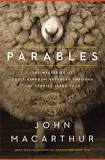
Why Parables?
All the above views are wrong—and dangerously so—because they take only part of the truth into account. Consider, for example, the common belief that the sole reason Jesus used parables was to make hard truths as clear, familiar, and easy to grasp as possible. When Jesus Himself explained why He spoke in parables, He gave practically the opposite reason:
The disciples came and said to Him, "Why do You speak to them in parables? He answered and said to them, "Because it has been given to you to know the mysteries of the kingdom of heaven, but to them it has not been given. For whoever has, to him more will be given, and he will have abundance; but whoever does not have, even what he has will be taken away from him. Therefore I speak to them in parables, because seeing they do not see, and hearing they do not hear, nor do they understand. And in them the prophecy of Isaiah [6:9—10] is fulfilled, which says:
'Hearing you will hear and shall not understand, And seeing you will see and not perceive; For the hearts of this people have grown dull. Their ears are hard of hearing, And their eyes they have closed, Lest they should see with their eyes and hear with their ears, Lest they should understand with their hearts and turn, So that I should heal them.” (Matt. 13:10—15)
While the parables do illustrate and clarify truth for those with ears to hear, they have precisely the opposite effect on those who oppose and reject Christ. The symbolism hides the truth from anyone without the discipline or desire to seek out Christ's meaning. That's why Jesus adopted that style of teaching. It was a divine judgment against those who met His teaching with scorn, unbelief, or apathy. In chapter 1, we'll look more closely into this idea, and we'll examine the circumstances that prompted Jesus to begin speaking in parables.
This is not to suggest that the parables were merely a reflection of the severity with which God condemns unbelief; they were also an expression of His mercy. Notice how Jesus (citing Isaiah's prophecy) described the unbelievers among those who followed Him. They had stopped up their own ears and held their own eyes tightly closed "lest they should understand with their hearts and turn, so that I should heal them" (v. 15). Their unbelief was stubborn, deliberate, and by their own choice irrevocable. The more they heard Christ, the more truth they were accountable for. The more they hardened their hearts against the truth, the more severe their judgment would be, for "to whom much is given, from him much will be required" (Luke 12:48). Thus by concealing spiritual lessons in everyday stories and symbols, Jesus was keeping them from piling guilt upon guilt on their own heads.
There were surely other merciful benefits of this teaching style. The parables (like any good illustration) would naturally arouse interest and increase attention in the minds of people who were not necessarily hard-set against the truth but simply lacked a measure of aptitude or had no taste for hearing doctrine expounded in plain, dogmatic language. No doubt the parables had the effect of awakening the minds of many such people who were struck by the simplicity of Jesus' parables and therefore became eager to discover the underlying meanings.
For others (including, surely, some whose first exposure to the truth may have provoked skepticism, indifference, or even rejection), the graphic imagery of the parables helped keep truth rooted in the memory until it sprang forth in faith and understanding.
Richard Trench, a nineteenth-century Anglican bishop, wrote one of the most widely read works on Jesus' parables. He highlights the mnemonic value of these stories:
Had our Lord spoken naked spiritual truth, how many of his words, partly from his hearers' lack of interest in them, partly from their lack of insight, would have passed away from their hearts and memories, and left no trace behind them. But being imparted to them in this form, under some lively image, in some short and perhaps seemingly paradoxical sentence, or in some brief but interesting narrative, they aroused attention, excited inquiry, and even if the truth did not at the moment, by the help of the illustration used, find an entrance into the mind, yet the words must thus often have fixed themselves in their memories and remained by them.10
So there were several good and gracious reasons for Jesus to package the truth in parables in the face of widespread unbelief, apathy, and opposition to His ministry (cf. Matt. 13:58; 17:17).
When explained, the parables were illuminating illustrations of crucial truths. And Jesus freely explained His parables to the disciples.
For those who remained unyielding in their refusal to hear, however, the unexplained parables remained riddles without clear meaning, so the parables further obscured Jesus' teaching from their already dull hearts.
Thus Jesus' immediate judgment against their unbelief was built right into the form of discourse He used when He taught publicly.
In short, Jesus' parables had a clear twofold purpose: They hid the truth from self-righteous or self-satisfied people who fancied themselves too sophisticated to learn from Him, while the same parables revealed truth to eager souls with childlike faith—those who were hungering and thirsting for righteousness. Jesus thanked His Father for both results: "I thank You, Father, Lord of heaven and earth, that You have hidden these things from the wise and prudent and have revealed them to babes. Even so, Father, for so it seemed good in Your sight" (Matt. 11:25—26).
Parables: The Mysteries of God's Kingdom Revealed Through the Stories Jesus Told
John F. MacArthur, Thomas Nelson (Oct. 27 2015) pp. xviii-xxi
Apokalypsis: The fulfillment of eschatological instruction by the Paraclete in the Age to Come promised by Jesus at the Last Supper
An apocalypse (Greek: apokalypsis meaning “an uncovering”) is in religious contexts knowledge or revelation, a disclosure of something hidden, “a vision of heavenly secrets that can make sense of earthly realities.” (Ehrman 2014, 59)
“An apocalypse (Ancient Greek: apokalypsis ... literally meaning "an uncovering") is a disclosure or revelation of great knowledge. In religious and occult concepts, an apocalypse usually discloses something very important that was hidden or provides what Bart Ehrman has termed, "A vision of heavenly secrets that can make sense of earthly realities". Historically, the term has a heavy religious connotation as commonly seen in the prophetic revelations of eschatology obtained through dreams or spiritual visions.” Wikipedia 2021-01-09
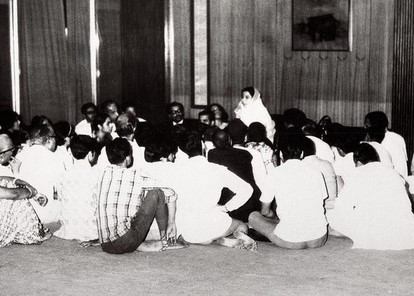
Total number of recorded talks 3058: Public Programs 1178, Pujas 651, and other (private conversations) 1249
“The Paraclete will come (15:26; 16:7, 8, 13) as Jesus has come into the world (5:43; 16:28; 18:37)... The Paraclete will take the things of Christ (the things that are mine, ek tou emou) and declare them (16:14-15). Bishop Fison describes the humility of the Spirit, 'The true Holy Spirit of God does not advertise Herself: She effaces Herself and advertises Jesus.' ...
It is by the outgoing activity of the Spirit that the divine life communicates itself in and to the creation. The Spirit is God-in-relations. The Paraclete is the divine self-expression which will be and abide with you, and be in you (14:16-17). The Spirit's work is described in terms of utterance: teach you, didasko (14:26), remind you, hypomimnesko (14:26), testify, martyro (15:26), prove wrong, elencho (16:8), guide into truth, hodego (16:13), speak, laleo (16:13, twice), declare, anangello (16:13, 14, 15). The johannine terms describe verbal actions which intend a response in others who will receive (lambano), see (theoreo), or know (ginosko) the Spirit. Such speech-terms link the Spirit with the divine Word. The Spirit's initiatives imply God's personal engagement with humanity. The Spirit comes to be with others; the teaching Spirit implies a community of learners; forgetful persons need a prompter to remind them; one testifies expecting heed to be paid; one speaks and declares in order to be heard. The articulate Spirit is the correlative of the listening, Spirit-informed community.
The final Paraclete passage closes with a threefold repetition of the verb she will declare (anangello), 16:13-15. The Spirit will declare the things that are to come (v.13), and she will declare what is Christ's (vv. 14, 15). The things of Christ are a message that must be heralded...
The intention of the Spirit of truth is the restoration of an alienated, deceived humanity... The teaching role of the Paraclete tends to be remembered as a major emphasis of the Farewell Discourses, yet only 14:26 says She will teach you all things. (Teaching is, however, implied when 16:13-15 says that the Spirit will guide you into all truth, and will speak and declare.) Franz Mussner remarks that the word used in 14:26, didaskein, "means literally 'teach, instruct,' but in John it nearly always means to reveal.” (Stevick 2011, 292-7)
The Holy Spirit as feminine: Early Christian testimonies and their interpretation,
Johannes van Oort, Radboud University, Nijmegen, The Netherlands
Department of Church History and Church Polity, Faculty of Theology, University of Pretoria, South Africa
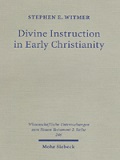
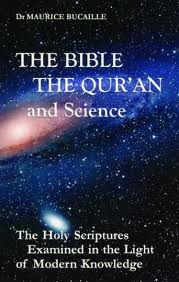
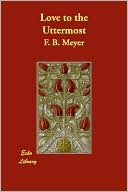
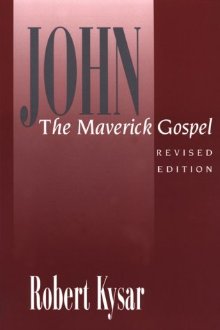
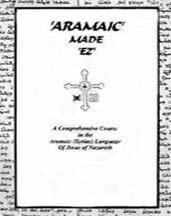
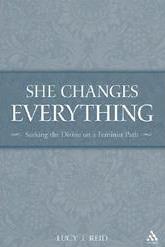
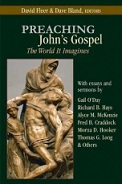
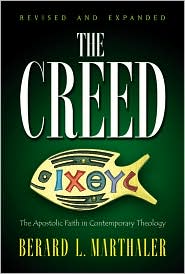
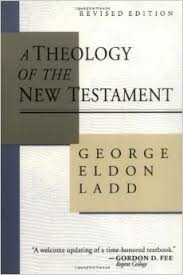
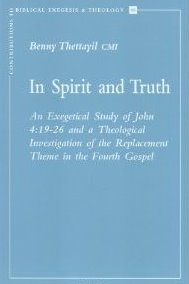

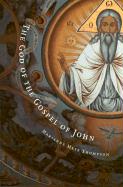
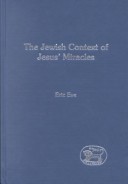
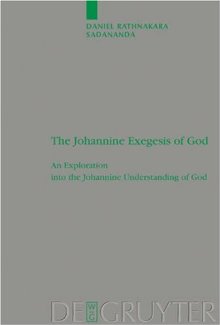

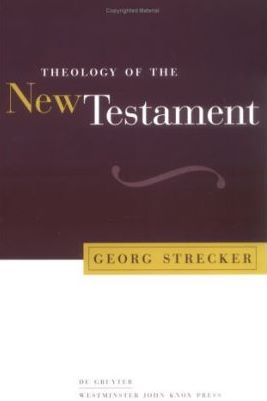

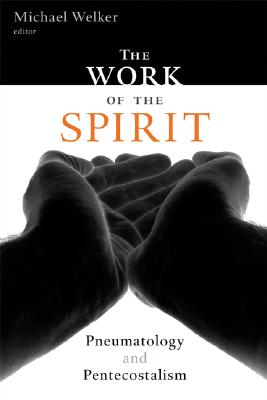
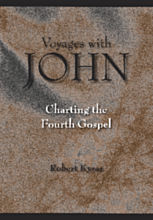
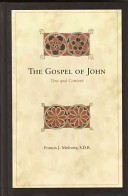
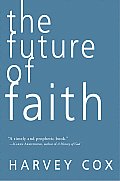
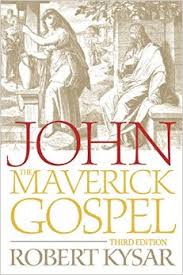
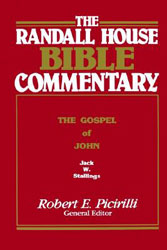
 “The teaching of the Paraclete, as the continuation of Jesus' teaching, must also be understood as the fulfillment of the promise of eschatological divine instruction.”
“The teaching of the Paraclete, as the continuation of Jesus' teaching, must also be understood as the fulfillment of the promise of eschatological divine instruction.”Stephen E. Witmer, Divine instruction in Early Christianity
“Jesus therefore predicts that God will later send a human being to Earth to take up the role defined by John .i.e. to be a prophet who hears God's words and repeats his message to man.”
M. Bucaille, The Bible, the Qur'n, and Science
“And when Jesus foreannounced another Comforter, He must have intended a Person as distinct and helpful as He had been.”
F. B. Meyer, Love to the Utmost
“The Paraclete has a twofold function: to communicate Christ to believers and, to put the world on trial.”
Robert Kysar, John The Meverick Gospel
“But She—the Spirit, the Paraclete...—will teach you everything.”
Danny Mahar, Aramaic Made EZ)
“Grammatical nonsense but evidence of the theological desire to defeminize the Divine.”
Lucy Reid, She Changes Everything
“The functions of the Paraclete spelled out in verses 13-15... are all acts of open and bold speaking in the highest degree.”
David Fleer, Preaching John's Gospel
“The reaction of the world to the Paraclete will be much the same as the world's reaction was to Jesus.”
Berard L. Marthaler, The Creed: The Apostolic Faith in Contemporary Theology
Bultmann calls the “coming of the Redeemer an 'eschatological event,' 'the turning-point of the ages.”
G. Ladd, A Theology of the New Testament
“The Paraclete equated with the Holy Spirit, is the only mediator of the word of the exalted Christ.”
Benny Thettayil, In Spirit and Truth
“The divine Paraclete, and no lessor agency, must show the world how wrong it was about him who was in the right.”
Daniel B. Stevick , Jesus and His Own: A Commentary on John 13-17
Stephen Smalley asserts that “The Spirit-Paraclete ... in John's Gospel is understood as personal, indeed, as a person.”
Marianne Thompson, The God of the Gospel of John
“The Messiah will come and the great age of salvation will dawn (for the pious).”
Eric Eve, The Jewish context of Jesus' Miracles
“The remembrance is to relive and re-enact the Christ event, to bring about new eschatological decision in time and space.”
Daniel Rathnakara Sadananda, The Johannine Exegesis of God
“The Spirit acts in such an international situation as the revealer of 'judgment' on the powers that rule the world.”
Michael Welker, God the Spirit
The Paraclete's “Appearance means that sin, righteousness, and judgment will be revealed.”
Georg Strecker, Theology of the New Testament
“While the Spirit-Paraclete is the true broker, the brokers they rely on are impostors.”
T. G. Brown, Spirit in the writings of John
“The pneumatological activity ... of the Paraclete ... may most helpfully be considered in terms of the salvific working of the hidden Spirit.”
Michael Welker, The work of the Spirit
“The pneuma is the peculiar power by which the word becomes the words of eternal life.”
Robert Kysar, Voyages with John
“The gift of peace, therefore, is intimately associated with the gift of the Spirit-Paraclete.”
Francis J. Moloney, The Gospel of John
“This utopian hope, even when modestly expressed, links Jesus and the prophets to a much wider history of human longing.”
Harvey Cox, The Future of Faith
“Because of the presence of the Paraclete in the life of the believer, the blessings of the end-times—the eschaton—are already present.”
Robert Kysar, John
“They are going, by the Holy Spirit's power, to be part of the greatest miracle of all, bringing men to salvation.”
R. Picirilli, The Randall House Bible Commentary
“The Kingdom of God stands as a comprehensive term for all that the messianic salvation included... is something to be sought here and now (Mt. 6:33) and to be received as children receive a gift (Mk. 10:15 = Lk. 18:16-17).”
G. Ladd, A Theology of the New Testament
Disclaimer: Our material may be copied, printed and distributed by referring to this site. This site also contains copyrighted material the use of which has not always been specifically authorized by the copyright owner. We are making such material available to our readers under the education and research provisions of "fair use" in an effort to advance freedom of inquiry for a better understanding of religious, spiritual and inter-faith issues. The material on this site is distributed without profit. If you wish to use copyrighted material for purposes other than “fair use” you must request permission from the copyright owner.